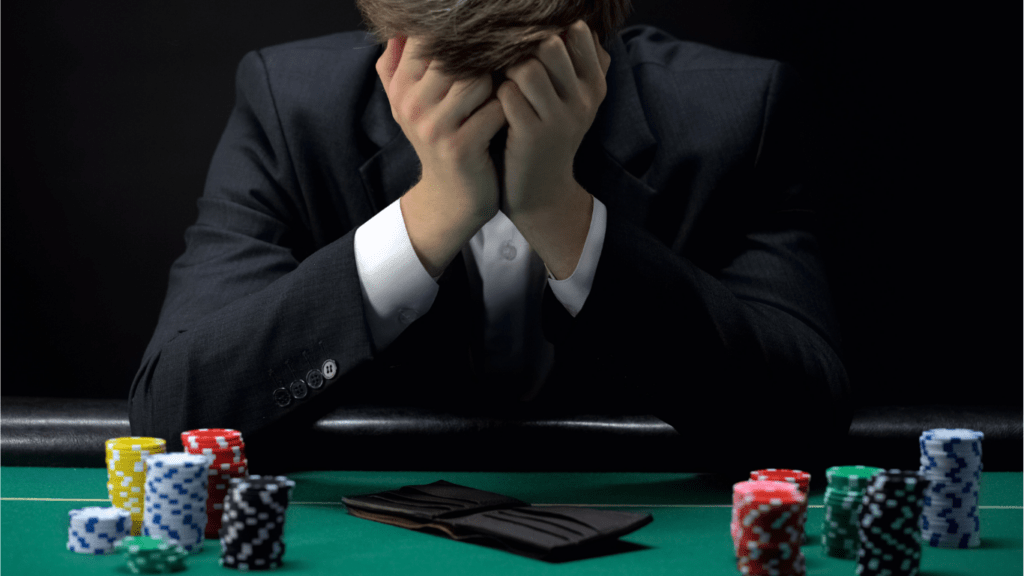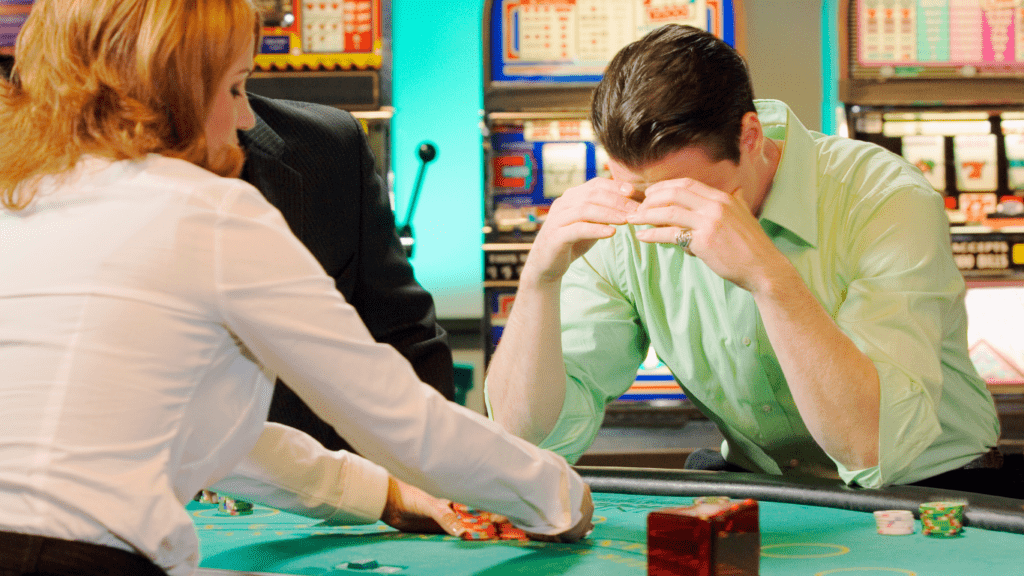There’s something captivating about the world of high-stakes gambling. The glitz, the adrenaline, and the promise of life-changing wins draw in thrill-seekers from all walks of life. But for every big win, there’s a darker side—stories of staggering losses that leave even the wealthiest reeling. It’s a stark reminder that fortune can be as fleeting as it is enticing.
The World Of High Rollers And Their Risks
High rollers, often referred to as “whales,” place massive bets and frequent VIP rooms in casinos. Their immense wagers, sometimes reaching millions of dollars in a single session, fuel both their thrill and the industry’s profitability. Casinos cater to them by offering extravagant perks like private jets, luxury suites, and unlimited credit lines.
These gamblers face a unique set of risks. The higher the stakes, the sharper the swings in fortune. Many high rollers endure substantial losses quickly due to the volatile nature of games like:
- blackjack
- roulette
- baccarat
For example, multimillionaire businessman Terrance Watanabe reportedly lost over $200 million in Las Vegas casinos in just one year.
Psychological strain intensifies the risk for high rollers. The pressure to win back losses, combined with the adrenaline of the game, can lead to impulsive decisions. This often escalates losing streaks. Some gamblers, like professional athletes or entrepreneurs, have seen their wealth evaporate entirely due to repeated poor decisions at the table.
Economic consequences also ripple beyond personal losses. Casinos expect high rollers to lose a certain percentage over time, making consistent losses statistically unavoidable. When professionals or self-made billionaires exhaust their fortunes, their businesses and families often face collateral damage.
High rollers chase disproportionate rewards but face significant vulnerabilities. This rollercoaster dynamic is central to their appeal and peril.
Famous Losing Streak Stories
High-stakes gambling isn’t reserved for the average casino visitor; historic losing streaks have ensnared even the wealthiest gamblers. These stories reveal how relentless luck—or lack thereof—impacts anyone daring to take the risk.
The Monte Carlo Millionaire
Charles Deville Wells, nicknamed the “Monte Carlo Millionaire,” infamously lost vast sums after previously earning recognition for an astonishing winning streak in 1891. Known for turning a small fortune into £1 million (adjusted to modern value), he later became the embodiment of misfortune. Returning to Monte Carlo with newfound wealth, he gambled recklessly, drained his resources, and faced financial ruin. His downfall often highlights the perilous boundary between luck and hubris.
Archie Karas: The Streak To Bust
Archie Karas’s gambling career remains a legend in gaming history, marked by both unrivaled success and a catastrophic downfall. Over three years in the 1990s, Karas turned $50 into $40 million in Las Vegas, leveraging poker and high-stakes dice games. However, the tides turned sharply. He lost everything, including his last $1 million, through poor judgment and escalating bets. Karas’s story embodies the volatility of unchecked ambition in high-stakes gambling.
Terrance Watanabe: A Billion-Dollar Bust
Terrance Watanabe’s losing streak is one of the most notorious in recent history. In 2007, the former CEO gambled his way through approximately $127 million at Caesars Palace and The Rio, losses accounting for over 5% of their yearly gambling revenue. Fueled by games like baccarat and slot machines, his losses spiraled as reported bouts of alcohol use further clouded his judgment. Watanabe’s story underscores how even business moguls face emotional and financial vulnerability in pursuit of elusive winnings.
The Psychology Behind Losing Streaks

Losing streaks in gambling often stem from complex psychological factors that influence decision-making under pressure. Understanding these factors reveals how emotional responses exacerbate losses, especially for high rollers.
The Allure Of Chasing Losses
- Chasing losses stems from a desire to recover quickly, driven by frustration and denial.
- Many gamblers believe that staying in the game longer increases their chance of a rebound.
- A high roller who loses millions on baccarat may double their bets, hoping to recoup losses swiftly, regardless of diminishing odds.
- This behavior is rooted in the gambler’s fallacy—the mistaken belief that a win is “due” after consecutive losses.
- Emotional distress clouds judgment, turning calculated risks into reckless wagers.
The Impact Of Overconfidence
Overconfidence can amplify losing streaks when gamblers overestimate their abilities or luck. High rollers, accustomed to controlling other aspects of their lives such as business empires or personal success, often assume similar control over games of chance. For instance, a wealthy patron might persist in blackjack, trusting in their intuition despite mounting losses. This misplaced confidence ignores the inherent randomness of gambling, leading to riskier decisions and compounding financial setbacks. Even after successive losses, many resist scaling back, convinced their strategy will eventually pay off.
Consequences Of Losing It All
High-stakes gambling often leaves a trail of profound consequences beyond monetary losses. Financial ruin and emotional upheaval intertwine, affecting individuals and their close networks.
Financial Collapse
Uncontrolled gambling losses frequently lead to complete financial depletion. High rollers, wagering millions on single bets, often risk not just their savings but also liquidate assets, sell businesses, or fall into extreme debt. For instance, Terrance Watanabe’s $127 million loss reportedly consumed his family fortune and left his business in jeopardy. Bankruptcies and legal battles with creditors are common when high-profile gamblers exhaust their resources. These financial losses can also create ripples by impacting dependent family members, employees, and partnerships.
Emotional And Social Repercussions
Losing vast sums often triggers severe emotional distress. Gamblers experience feelings of guilt, shame, and isolation after publicized failures; this is magnified for public figures and business tycoons like Archie Karas, whose loss of $40 million drew significant attention. Relationships frequently suffer as financial strain breeds mistrust and resentment. High rollers may withdraw socially or face stigmatization within their communities. Depression and substance abuse become risks as emotional pain escalates. These consequences underscore the far-reaching impact gambling losses can have on mental health and personal connections.
Lessons To Learn From High Rollers’ Losses
High rollers’ gambling tales reveal valuable insights into navigating risks and preventing devastating losses. By examining their patterns, we can derive crucial strategies for managing finances and emotions effectively.
The Importance Of Money Management
Effective money management ensures controlled gambling habits while reducing financial risks. High rollers often lose fortunes because they fail to set strict betting limits or allocate separate bankrolls for gambling versus personal assets. Maintaining a dedicated gambling budget protects core savings and prevents reckless overextension. For example, Terrance Watanabe’s staggering losses stemmed partly from dipping into his business funds. Proper allocation reduces the temptation to chase losses.
Tracking spending and maintaining limits strengthens accountability. Tools like loss trackers and casino self-limiting options can minimize excessive betting. Gamblers also benefit from pre-determining profit and loss thresholds, exiting the game before losses escalate or winnings evaporate through continued play.
Knowing When To Walk Away
Knowing when to walk away minimizes impulsive decision-making during emotional highs or lows. High rollers often fall victim to the gambler’s fallacy, believing persistence guarantees a winning streak. This mindset, as seen in Archie Karas’s rapid downfall, amplifies risks during losing periods. Stopping at a pre-set limit halts the cycle of chasing losses.
Pausing during prolonged losing streaks fosters clearer judgment and reduces overconfidence-driven betting. Walking away isn’t solely about monetary loss but also emotional health. High-stakes gambling often heightens frustration and denial, clouding decision-making. By leaving the table, players can reassess strategies, avoiding irreparable financial or psychological harm.



 Dallaseth Evansquire serves as the Chief Content Strategist at Gamble Time Hub, where they lead the vision and direction of all editorial content. With a deep-rooted passion for the gambling industry, Dallaseth curates and oversees high-quality articles that span gambling news, sports betting analysis, and high-stakes player stories. Their expertise ensures that the platform remains both informative and engaging, while also emphasizing the importance of responsible gambling practices. Dallaseth’s creative direction plays a key role in shaping the voice and credibility of Gamble Time Hub.
Dallaseth Evansquire serves as the Chief Content Strategist at Gamble Time Hub, where they lead the vision and direction of all editorial content. With a deep-rooted passion for the gambling industry, Dallaseth curates and oversees high-quality articles that span gambling news, sports betting analysis, and high-stakes player stories. Their expertise ensures that the platform remains both informative and engaging, while also emphasizing the importance of responsible gambling practices. Dallaseth’s creative direction plays a key role in shaping the voice and credibility of Gamble Time Hub.

